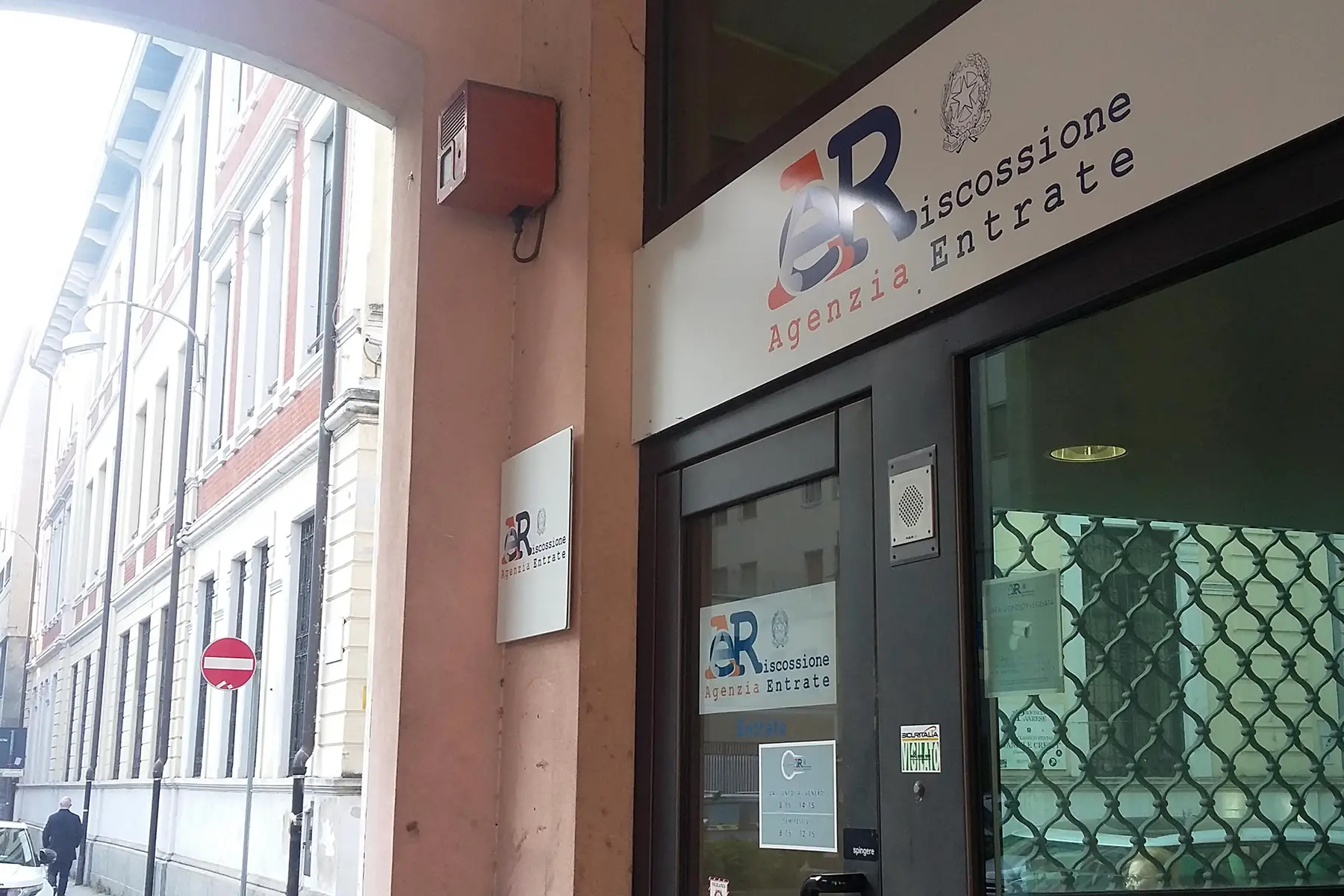Freelancing in Italy often involves working with international clients, which can complicate financial management. Beyond understanding the Italian tax system, international freelancers need efficient solutions for receiving payments in multiple currencies and managing cross-border transactions.
Wise offers freelancers in Italy cost-effective ways to receive international payments and convert currencies at the mid-market exchange rate, helping maximize earnings.
Find advice on the following topics below:
- Self-employed tax system in Italy
- Income tax in Italy for freelancers and the self-employed
- Tax deductions and credits for Italian freelancers and self-employed
- Corporate tax in Italy
- How to file self-employed and freelance tax in Italy
- VAT in Italy for self-employed workers
- Italian social security for self-employed workers
- Self-employed and freelance tax fines in Italy
- How to find an Italian accountant or financial advisor
- Managing international finances as an Italian freelancer
- Conclusion
- Useful resources
Xolo
Xolo is an all-in-one service tailored for expat freelancers in Italy. Their team of expert accountants and digital business management tools support freelancers in English so they feel secure when setting up and running a business. Sign up for Xolo to take care of your invoicing, expenses, and taxes easily.
Self-employed tax system in Italy
Freelancers and self-employed people in Italy must file an annual tax return and pay income tax (IPREF or imposta sul reddito delle persone fisiche) on their earnings. The Italian Revenue Agency (Agenzia della Entrate) oversees the Italian tax system, and the financial year runs from 1 January to 31 December.

Working for yourself is a popular option in Italy. Data from World Bank shows that around 21% of workers in Italy are self-employed. What’s more, the tax system for self-employed people working as sole traders and freelancers is relatively straightforward. However, if you’re setting up a larger company and employing staff, you’ll likely be liable for corporate rather than income tax.
For the growing number of self-employed workers in Italy who serve international clients, managing payments across borders efficiently is essential.

Wise Business provides freelancers with account details in 20+ currencies, allowing them to receive payments conveniently in major currencies like USD, EUR and GBP, without incurring excessive currency conversion fees or bad exchange rates.
This can be particularly valuable when calculating your taxable income, as minimizing transaction costs means more of your earnings remain available for business growth.
Income tax in Italy for freelancers and the self-employed
There are a couple of different structures for self-employed workers in Italy.
- Sole proprietorship (ditta individuale): Designed for self-employed traders, such as plumbers, electricians, and shopkeepers, allowing you to hire employees
- Freelancer (libero professionista): Status is exclusively available to self-employed residents who carry out intellectual activities such as consultancy, legal work, or journalism
Whichever option you choose, you’ll need to file an Italian tax return and pay income tax.
If you’re starting a company in Italy for the first time, you must decide on a tax regime. You either pay the standard taxed rates (for employees) or use the regime forfettario, a flat-rate tax scheme introduced in 2015.

Customer Success Specialist, Xolo
Maria Bozzo
Insider Tip: Regime Forfettario
Freelancers can benefit from the Regime Forfettario, a simplified tax system that applies a flat tax rate of 15%, reduced to 5% for the first 5 years if certain conditions are met. Eligibility depends on factors like annual revenue limits and restrictions on specific activities.
Standard rates of income tax
If you pay standard tax rates, your income will be taxed progressively across four bands. In 2026 (for income earned in 2025), the bands are as follows:
| Italian income tax bands | Italian tax rate |
| Up to €28,000 | 23% |
| €28,001–50,000 | 33% |
| €50,001 and above | 43% |
If you choose the standard tax system, you’ll be able to deduct certain expenses when filing your tax return. You’ll also be able to use Italy’s tax credit for self-employed workers.

Self-employed workers using the standard tax system can benefit from the workers relocating to Italy scheme (lavoratori impatriati). This allows individuals to only pay tax on 50% of their income for the first five years of living in Italy. Workers with a dependent child only need to pay tax on 40% of their income.
When working with international clients, freelancers in Italy often receive income in multiple currencies, which must eventually be converted to euros for tax reporting.
Wise Business allows you to convert currencies at the mid-market exchange rate with low transparent fees, potentially saving significant amounts This efficiency is especially important when calculating your taxable income across the progressive tax bands listed above.
Regime forfettario – flat rate tax system
Under regime forfettario, people starting freelance businesses in Italy can benefit from a freelance tax rate of just 5% for the first five years if they meet certain conditions. After five years, this increases to 15%.
You can reduce your rate even further. Each profession in Italy has an income code (ATECO – link in Italian), which specifies what percentage of their earnings will be taxed. For example, if you work in financial services, you must pay income tax on 78% of your earnings. Since your social security contributions are already deducted, you won’t need to complete a VAT return.
While this scheme might sound ideal on paper, there are some downsides. Most notably, you won’t be able to offset any expenses incurred in running your business in Italy. In this way, if you’re a sole trader working from home on a computer, you’re likely to be much better off than a freelancer in an industry with bigger overheads.
There are also some stringent rules over who is eligible for the scheme:
- Your earnings must not exceed €85,000.
- If you also make money from employment, you must not earn more than €35,000 per year.
- You wouldn’t be eligible if you earned more than €35,000 from your employer the previous year.
- You can’t give up employed work and freelance solely for your old employer.
- You must be an Italian tax resident.

To access the flat rate scheme, you’ll need to select regime forfettario when signing up for a VAT number. For more information on the specifics of the flat rate system, check the Italian Revenue Agency’s website.
Registering for self-employed tax in Italy
You’ll first need a tax identification number (codice fiscale) to register to pay tax as a self-employed worker. You can obtain this by taking your passport and residence card to your local municipality’s immigration desk or visiting a police headquarters. Non-EU citizens must define their business structure before they can register.
Sole traders who regularly engage in a ‘business or agricultural activity’ or ‘an artistic or professional activity’ need to acquire a VAT number in Italy (partita IVA). You’ll need to submit the relevant forms to the Italian Revenue Agency to register for VAT.
Tax deductions and credits for Italian freelancers and self-employed
If you choose the standard taxation system, you’ll be able to offset some of the costs of running your company when you file your tax return. These include office space, utilities, and materials.

There are also some standard deductions available. First, self-employed workers who earn less than €50,000 can deduct an income tax credit of up to €1,955.
A series of other deductions are available. These include the following:
- Family tax credit: Maximum of €1,220 for each child below three years, €950 for each child above three years, €800 for a dependent spouse, and €750 for other dependents.
- Medical expenses credit: 19% of the expenses incurred above €129.
- Education expenses credit: 19% of nursery, elementary, secondary, or high school education expenses up to around €1,000 per annum per child. University fees are fully deductible.
- Mortgage interest credit: 19% of mortgage interest paid, up to €4,000.
Wise Business provides clear transaction histories and categorization features that make it easier to track business expenses across multiple currencies. When preparing your tax return, having organized financial records from Wise can simplify the process of identifying deductible expenses, saving both time and potentially reducing your tax liability.

Corporate tax in Italy
Self-employed workers and freelancers in Italy don’t need to pay corporate tax. However, if you set up a limited company, your profits will be subject to two types of levies:
- Corporate tax (imposta sul reddito sulle società – IRES)
- Regional production tax (imposta regionale sulle attività produttive – IRAP)
Corporate tax is charged at 24%. IRAP is set at 3.9%, but local authorities can increase their IRAP rates by one percentage point. Certain sectors, for example the insurance sector, charge higher IRAP rates of up to 5.9%.
How to file self-employed and freelance tax in Italy
You must file your tax return annually. Whether you use the standard or flat rate system, you’ll need to file your Redditi PF tax form online by 31 October in the year following the tax year. Therefore, make sure you’ve completed your tax return for 2025 by 31st October 2026.

Customer Success Specialist, Xolo
Maria Bozzo
Insider Tip: Strict deadlines
Italy enforces strict deadlines for income tax returns, VAT declarations, and payments of advance and final tax installments. Missing these deadlines can result in penalties and interest. Keep track of these obligations or hire a professional for assistance.
Self-employed workers in Italy need to make two advance payments (payments on account) for the current tax year. These are calculated based on the liability from the previous tax year. On the other hand, if the company is new, you can provide an estimate of its profits. There are two advanced payments:
- 40% payment due in June
- 60% payment due in November
VAT in Italy for self-employed workers
The Italian government charges VAT on items consumed and services provided in Italy. The standard rate is 22%, though lower rates are available on some items and services, as follows:
| Items and services | Rate |
| Standard rate | 22% |
| Specified utilities, food, drink, hospitality, transport, leisure, and care services | 10% |
| Specified health services and transport services | 5% |
| Specified food, drinks, and agricultural products | 4% |
| Education, insurance, and some financial services | 0% |
VAT returns must be submitted once a year, between 1 February and 30 April 2025. You can learn more about the specific rules for different types of companies from the Italian Revenue Agency.
Italian social security for self-employed workers
Employees and self-employed workers must make social security contributions to the Italian Social Security Administration (INPS or Instituto Nazionale Previdenza Sociale). For employees, these are split between the employer (around 30%) and the employee (10%).

Self-employed people must make contributions at a higher rate. If registered for VAT, but not covered by a mandatory pension fund, you’ll need to pay social security contributions through the separate social security regime (gestione separata), at a rate of around 26%. Those enrolled in a mandatory fund make social security contributions at a rate of about 24%.
Self-employed and freelance tax fines in Italy
If you fail to file your tax return on time, you’ll need to pay a fine to the tax authority. Penalties vary from €250 to €1,000. If you have underpaid tax, you’ll be liable for the amount owed plus a surcharge. The surcharge ranges from 120% to 240%, depending on the size of the liability and how late the payment is. If you file on time but underpay tax owed, you can face a fine of up to 30% of the amount owed. You may face further fines if you fail to declare foreign assets in a non-cooperative country or jurisdiction.
How to find an Italian accountant or financial advisor
Getting your head around the Italian tax system can take time and effort. Therefore, accessing professional financial advice from an English-speaking tax expert can be invaluable, when you file a freelance tax return in Italy. Firms offering these services include:
Moving2Italy
When relocating to Italy, get expert help from Moving2Italy on taxes, work permits, and setting up a business. They also provide personalized support for immigration, social security, and residence, helping you navigate your new life abroad. For assistance with fiscal and immigration matters, contact Moving2Italy.
You can find an accountant by searching Expatica’s business directory or contacting the CNDCEC (Consiglio Nazionale dei Dottori Commercialisti e degli Esperti Contabili), the trade body for accountants operating in Italy.
Managing international finances as an Italian freelancer
As a freelancer in Italy working with international clients, managing multiple currencies efficiently can significantly impact your bottom line. Beyond understanding Italian tax obligations, optimizing how you receive, hold, and convert foreign currencies can preserve more of your pre-tax income.
Wise offers several features specifically designed to help freelancers in Italy navigate international finances:
- Account Details: Receive payments easily in GBP, USD, EUR, and other major currencies without having to open bank accounts abroad. This eliminates the need for clients to make expensive international transfers and helps you avoid excessive incoming payment fees.
- Mid-market Exchange Rate: Convert currencies at the mid-market exchange rate, with transparent fees. This matters when calculating taxable income, as favorable conversion rates mean more of your earnings remain available.
- Multi-currency Management: Hold balances in 40+ currencies in one place, and convert only when rates are favorable or when you need euros for payments, social security contributions, or business expenses.
- Business Debit Card: Access your money worldwide with minimal fees, making it easier to track business expenses that may qualify for deductions.
- Batch Payments: Pay multiple suppliers, contractors, or tax authorities in different currencies from a single account.
- Accounting Integration: Connect with popular accounting software to streamline record-keeping for tax purposes.
For freelancers using the regime forfettario, these savings can be particularly valuable since you can’t deduct business expenses. Every euro saved on banking and currency conversion directly improves your after-tax profit margin.
Conclusion
Wise helps simplify international payments, reduce currency conversion costs, and maintain clear financial records – all of which can contribute to smoother tax filing and potentially higher after-tax earnings.
By combining local tax expertise with modern international banking solutions, freelancers in Italy can build more profitable and sustainable businesses in today’s global marketplace.
Useful resources
- Italian Revenue Agency – official Italian tax authority
- PwC – information on allowable deductions for self-employed workers






